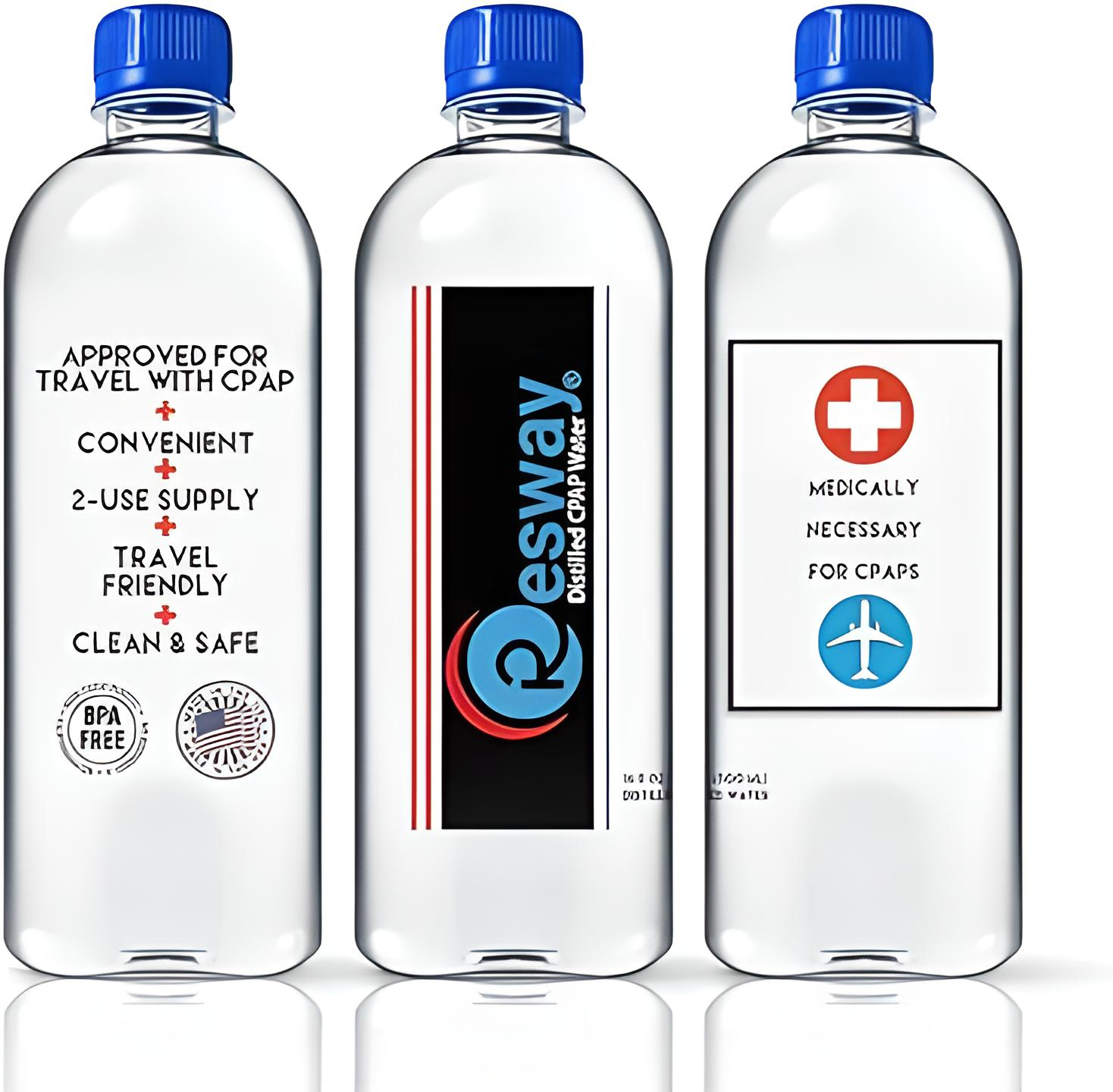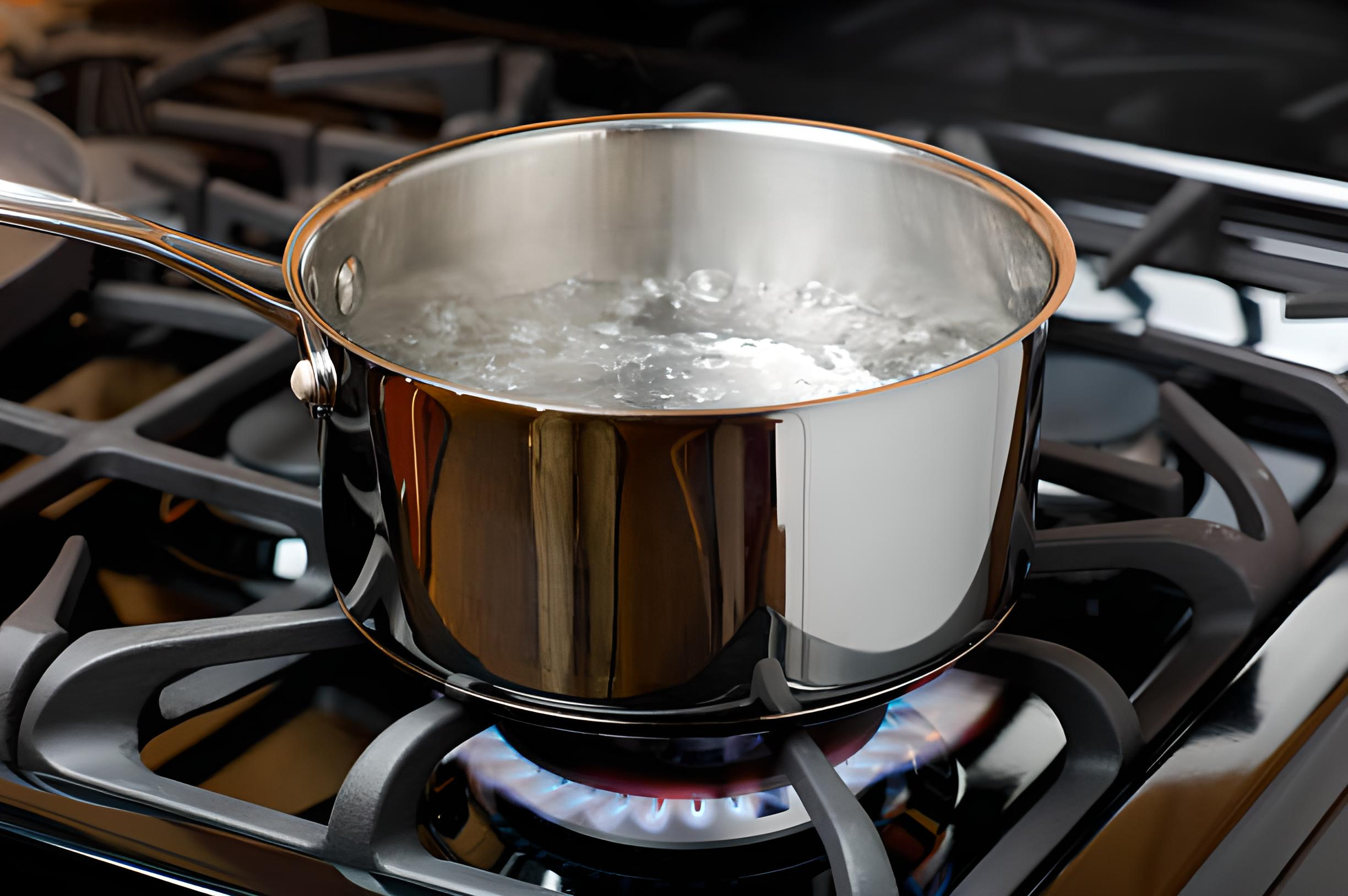Hard water and CPAP maintenance are crucial aspects to consider for those relying on Continuous Positive Airway Pressure (CPAP) therapy for sleep-related breathing disorders.
CPAP machines, a cornerstone in treating conditions like sleep apnea, ensure a constant flow of air to help users breathe easily during sleep. The effectiveness of these machines, however, can be significantly influenced by the type of water used in their humidifiers. Hard water, prevalent in many households, poses unique challenges in the maintenance of CPAP equipment.
Understanding how hard water interacts with CPAP machines and the importance of proper maintenance practices is essential for the longevity and efficiency of these life-improving devices. Read until the end to learn more.
Understanding Hard Water
Grasping the nuances of hard water is key for optimal CPAP machine maintenance. Hard water, unlike its soft water counterpart, contains high levels of minerals like calcium and magnesium. This difference is not just a matter of chemistry; it has significant implications for selecting the best water for CPAP maintenance.
In general household use, hard water can lead to mineral buildup in appliances, affecting their efficiency and lifespan. This characteristic of hard water becomes particularly important when considering CPAP machines. The use of hard water in such medical equipment could pose challenges that go beyond general appliance maintenance, impacting the health benefits that these devices offer.
Understanding the properties of hard water and its general effects on appliances sets the stage for a deeper exploration of its specific impact on CPAP machines. This knowledge is fundamental to ensuring the longevity and effectiveness of CPAP therapy.
The Impact of Hard Water on CPAP Equipment
The relationship between hard water and CPAP maintenance is intricate and important for effective CPAP care.
The mineral-rich nature of hard water can significantly affect the CPAP machine’s water tank, water chamber, and humidifier. When hard water is used in these components, it leaves behind mineral deposits, primarily calcium and magnesium, which can clog and corrode, leading to reduced efficiency.
These mineral deposits can accumulate specifically in the CPAP water chamber and on the heating element of the CPAP humidifier, obstructing air passages and affecting the machine’s ability to maintain consistent air pressure – a critical element of effective CPAP therapy.
Moreover, hard water might introduce chemical contaminants into the CPAP system. While not typically harmful in drinking water, these contaminants can interact adversely with CPAP components, leading to wear and tear and necessitating more frequent maintenance or part replacements.
Addressing these challenges requires a thoughtful approach to CPAP care, including the choice of water used. Employing distilled water in CPAP machines can mitigate these hard water-related issues, ensuring that the machine remains a reliable aid in managing sleep-related breathing disorders.
Importance of Using Distilled Water In CPAP Machines

In the realm of CPAP therapy, the best water for CPAP maintenance is a topic of significant importance.
A key part of this discussion involves comparing distilled water with tap water, particularly in the context of their use in CPAP machines. The choice of water plays a pivotal role in maintaining the device’s efficiency and prolonging its lifespan.
Distilled water, due to its process of purification, is devoid of minerals and impurities commonly found in tap water. This purity is crucial in preventing mineral buildup in the CPAP water chamber and the humidifier. When tap water is used, the minerals in it can deposit in the machine, leading to calcification and potential blockages in the water tank and other components.
Over time, these deposits can impair the machine’s functionality and may even necessitate costly repairs or replacements.
Moreover, distilled water’s lack of chemical contaminants protects the CPAP equipment from corrosion and wear, which can be accelerated by the chemicals often present in tap water. This is particularly important for those living in areas with hard water, where the higher mineral content can have more pronounced effects on the machine
Regular Cleaning And Maintenance of CPAP Machines
Regular cleaning and maintenance are pivotal in managing the challenges of hard water and CPAP maintenance.
Proper upkeep not only ensures the efficiency of the CPAP machine but also extends its lifespan. Here, we outline essential steps for daily and weekly maintenance routines for CPAP equipment, highlighting the significance of using soapy water for cleaning and the necessity of thorough rinsing.
Daily Maintenance
- CPAP Mask and Tubing: Daily, rinse the CPAP mask and tubing with soapy water to remove any dust, skin oils, and other residues. This prevents the buildup of contaminants which can affect the quality of CPAP therapy.
- Humidifier Water Chamber: Empty and rinse the humidifier water chamber daily, especially if you’re in a hard water area. This reduces the risk of mineral deposits forming.
Weekly Maintenance
- Deep Cleaning of Mask and Tubing: Once a week, soak the mask and tubing in soapy water for a more thorough cleaning. This helps to remove any residues that daily rinsing might miss.
- Water Chamber and Filter Inspection: Inspect the water chamber for any signs of mineral deposit buildup. Also, check and replace the CPAP machine’s filter as needed to ensure optimal air quality.
- Overall Equipment Check: Regularly check all parts of the CPAP machine, including the water tank and any other removable parts, for any signs of wear or damage.
In addition to these steps, it’s important to ensure that after cleaning with soapy water, all parts are thoroughly rinsed and dried. Residual soap can cause irritation and degrade the quality of the materials over time.
For users in areas with hard water, incorporating distilled water into the maintenance routine can significantly reduce mineral deposit formation, further aiding in the maintenance of the CPAP equipment.
DIY Solutions: Creating Your Own Distilled Water

For those seeking the best water for CPAP maintenance, a DIY solution lies in creating your own distilled water.
This approach is not only cost-effective but also convenient, particularly for individuals who use a CPAP machine regularly. Distilling water at home helps keep your CPAP machine running smoothly by avoiding the mineral buildup associated with tap water and ensuring the optimal performance of your CPAP therapy.
Step-By-Step Guide To Home Distillation
- Boiling: Begin by filling a large pot with tap water. Bring the water to a boil. The boiling process will turn the water into steam, leaving most of the minerals and impurities behind.
- Condensation: Place a rounded lid upside down on the pot. The steam will condense on the lid and then drip into a separate, clean container placed inside the pot. This condensed water is essentially distilled.
- Collection: Collect the distilled water from the container. Ensure that the container is clean and sterile to maintain the purity of the water.
This DIY method is both cost-effective and practical, especially for those living in areas where distilled water is not readily available. By distilling your own water, you can have a consistent supply of mineral-free water for your CPAP water chamber and humidifier, reducing the frequency of mineral deposit-related maintenance.
Additionally, this practice offers convenience. Instead of purchasing distilled water regularly, you can produce it at home as needed. This not only saves money but also ensures you always have the best water available for your CPAP machine maintenance.
Tips For Long-Term CPAP Machine Care In Hard Water Areas
Maintaining CPAP machines in areas with hard water requires a specific approach to ensure their longevity and functionality. Here, we provide practical tips and strategies that can help you identify and mitigate issues related to hard water and CPAP equipment.
- Use Distilled Water: As emphasized earlier, using distilled water instead of tap water in your CPAP machine is crucial in hard water areas. This prevents the buildup of mineral deposits in the CPAP water chamber and humidifier.
- Regular Descaling: If you have been using tap water or suspect mineral buildup, descale your CPAP water tank and humidifier regularly. You can use a mixture of white vinegar and water for this purpose. Rinse thoroughly after descaling.
- Frequent Filter Changes: Hard water can lead to faster accumulation of impurities in filters. Check and change the CPAP machine filters more frequently than the standard recommendation, especially if you notice any discoloration or clogging.
- Inspect for Mineral Deposits: Regularly inspect all parts of your CPAP machine, especially the water tank and humidifier, for any signs of mineral deposits. If you notice any, clean them immediately.
- Dry the Equipment Properly: After each cleaning, make sure to dry your CPAP equipment completely. Moist environments can exacerbate mineral buildup.
- Professional Maintenance Checks: Schedule regular maintenance checks with a CPAP care professional, especially if you live in a hard water area. They can provide a thorough inspection and cleaning of your equipment.
By following these tips, you can effectively manage the challenges posed by hard water on your CPAP equipment, ensuring that it continues to function optimally for your CPAP therapy needs
Optimize Your CPAP Care With Resway Today!
Managing hard water and CPAP maintenance effectively is crucial for the longevity and effectiveness of your CPAP therapy.
Adhering to the guidelines outlined in this article, especially when contending with the challenges posed by hard water, is essential. Regular maintenance, using distilled water, and being vigilant about cleaning and descaling your CPAP equipment are key practices that can significantly impact the performance and lifespan of your machine.
Remember, the right care and maintenance routine not only ensures the efficient functioning of your CPAP machine but also contributes to the overall success of your CPAP therapy.
For those looking for specialized supplies and accessories, our Amazon store, Resway, offers a selection of top-quality CPAP products. Whether you are dealing with hard water and CPAP maintenance challenges or simply aiming to optimize your CPAP care, resources like Resway can be invaluable in maintaining your CPAP equipment effectively.
By taking these proactive steps and utilizing the right resources, you can enjoy uninterrupted, effective CPAP therapy, ensuring you get the restful sleep you deserve.




